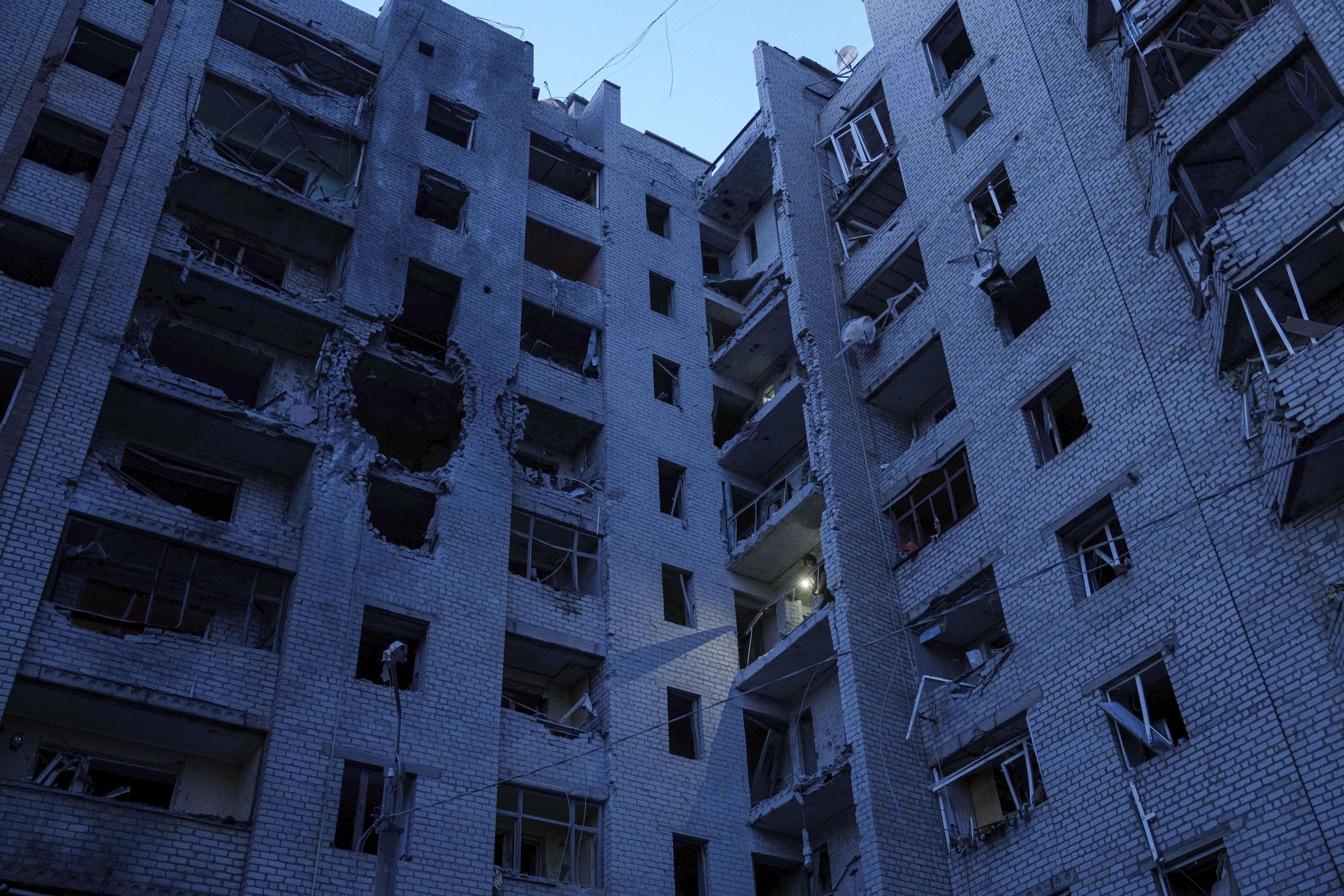EU envoys have been working in Brussels this week on a proposal to provide Ukraine with a hefty loan package worth up to 35 billion euros ($39 billion). It was announced by European Commission President Ursula von der Leyen during a trip to Kyiv last Friday.
"Crucially, this loan will flow straight into your national budget," she told President Volodymyr Zelenskyy. "It will provide you with significant and much-needed fiscal space. You will decide how best to use the funds, giving you maximum flexibility to meet your needs."
Zelenskyy wants to buy weapons and bomb shelters and rebuild Ukraine's shattered energy network as winter draws near.
In international matters, particularly involving major conflicts, the EU rarely moves ahead without the U.S., but it hopes this decision will encourage others to come forward.
Almost 1,000 days since their full-scale invasion, Russian forces are making advances in the east. Ukraine's army has a shaky hold on part of the Kursk region in Russia, which has provided a temporary morale boost, but as casualties mount it remains outmanned and outgunned.
On the political front, Zelenskyy hopes to secure support for a "victory plan" that might force Russian President Vladimir Putin to the negotiating table. He's trying to persuade U.S. President Joe Biden and other allies to help strengthen Ukraine's hand in any future talks.
But a U.S. election looms, and polls suggest that Donald Trump might return to the White House in January. Trump has been critical of U.S. aid to Ukraine. On Wednesday, he said Zelenskyy should have made concessions to Putin before the invasion began in February 2022.
Most of the 27-nation EU fears that a Putin victory would lead to deep uncertainty. Russia's armed forces are depleted and currently incapable of another war, but the prospect of a future land grab in Estonia, Latvia, Lithuania or Poland remains.
The EU loans are part of a plan by the Group of Seven major industrialized nations to take advantage of interest earned on about $250 billion worth of frozen Russian assets, most of them held in Europe. These windfall profits are estimated at around 4.5 billion to 5.5 billion euros ($5 billion to $6 billion) a year.
The profits underpin the G7 plan. The EU would stump up $20 billion, the U.S. $20 billion, and Canada, Japan and the U.K. $10 billion together, for a combined total of $50 billion. The scheme expires at the end of the year, before the next U.S. president takes office.
Now, amid differences over how long the Russian asset freeze should be guaranteed, the EU has decided to go it alone. Its offer of up to $39 billion in loans accounts for almost the entirety of the U.S. share as well.
The U.S. wants to ensure that the assets are locked away for at least three years to guarantee the income. But EU member Hungary insists this should only happen in 6-month increments. Hungarian Prime Minister Viktor Orbán styles himself as a peacemaker and is too close to Putin for many of his partners' comfort.
The other 26 EU countries feel they must move now because time is running out.
The U.S. election is just weeks away. The Europeans are wary of Trump's unpredictability and are testing scenarios to help protect themselves from the kind of battering, like tariff hikes, their economies received during his past presidency. But they also see the Democrats as more inward looking these days.
Biden's Inflation Reduction Act left European leaders fuming over rules that favored American products. China and war in the Middle East are the foreign policy priorities of Democrat or Republican candidates alike, and for now the U.S. is in the grip of election campaign fever.
The EU hopes that Vice President Kamala Harris, if she is elected president, would enter the loan program as previously planned and reduce the EU's financial burden. But that remains an open question for now, and EU members say Ukraine's position is too precarious to hesitate.
Political delays in the U.S. Congress last year over a $60 billion support package starved Ukrainian troops of weapons and ammunition for months, resulting in "real consequences on the battlefield," in the words of NATO Secretary General Jens Stoltenberg.
Helping Ukraine in military terms is a challenge for the Europeans. They could not do it alone, and cannot match the U.S. transport, logistics and equipment superiority, despite progress in ramping up their defense industries to supply arms and ammunition.
But the world's biggest trading bloc does wield economic might. It has already given Ukraine about $132 billion since the full-scale invasion started. Within weeks it appears ready to provide tens of billions more, even though going it alone is not in the EU's DNA.
"I do not know what the Americans, the United States with the new presidency, will do or not," EU foreign policy chief Josep Borrell said on Tuesday. But, he said, "as long as the Ukrainians want to resist, we have to support them. Otherwise, we will make a historical mistake."
The Biden administration did announce Wednesday that the U.S. will send Ukraine a major military aid package, including cluster bombs and an array of rockets, artillery and armored vehicles. A U.S. official also said billions of dollars more in assistance would arrive over the coming months.
Meanwhile, deliberations on the EU's share of the G7 loan package will be high on the agenda of a summit of the bloc's leaders in Brussels on Oct. 17-18.
